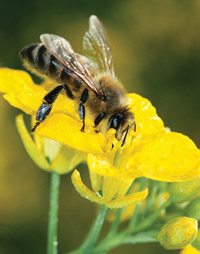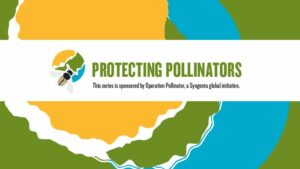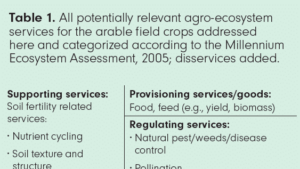As part of National Pollinator Week this week, Syngenta celebrates the growing footprint of Operation Pollinator, the program’s benefits to pollinator health and the enhanced biodiversity this global effort has brought to a variety of landscapes.
Initiated by Syngenta, Operation Pollinator helps restore pollinators in agricultural, golf and other landscapes by creating essential forage and habitats for bees and other pollinators. Farmers, land managers and golf course superintendents who participate in Operation Pollinator cultivate unused or marginal land areas with native flower species, which attract pollinators and function as essential food sources.
“Pollinators are important to agriculture, and it is incumbent on the ag industry to help pollinators thrive,” says Caydee Savinelli, Syngenta pollinator and integrated pest management stewardship lead. “Beyond the benefits that pollinators bring to crops, their habitats help promote biodiversity, reduce soil erosion and protect water sources from soil and nutrient pollution — just to name a few benefits.”
Operation Pollinator sites have been established on more than 200 golf properties across 29 states. And during the past three years, nearly 7,000 acres of pollinator forage and habitat have been planted on U.S. commercial farmland, in cooperation with R.D. Offutt, Delta F.A.R.M., Project Apis m, The Bee & Butterfly Habitat Fund and Trees Forever.
For Tennessee-based, certified golf course superintendent Paul Carter, participating in Operation Pollinator has helped enhance the environment at The Bear Trace at Harrison Bay.
“Golf course employees and visitors go home at night, but the wildlife stays,” says Carter. “This is their home, and it’s important that we take care of it. We can’t have a golf course without nature, so every decision we make takes into consideration environmental impact.”
Operation Pollinator is one of many environmental sustainability measures implemented at The Bear Trace at Harrison Bay, which is managed by the Tennessee Department of Environment and Conservation. The property is known for the pair of bald eagles that have nested at the site since 2010, and it is recognized as a “Certified Audubon Cooperative Sanctuary” by Audubon International, among other designations.
Beyond providing the wildflower seed needed to cultivate pollinator habitats, Syngenta advises on site selection and the agronomics of maintaining a habitat.
“Establishing a successful habitat is so much more than planting seeds,” says Savinelli. “That’s why we provide resources and counsel to farmers and golf course superintendents.”
Syngenta also maintains a website, www.beehealth.org, which functions as a resource for information on pollinator health matters, and recently developed a quick guide that can be referenced by farmers and landowners interested in converting land to pollinator habitat.













